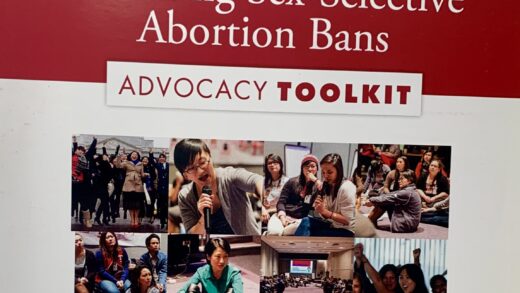by: Julia Garnett

What’s next with Trump headed back to the White House? Part of the answer lies within the history of women rising up to run for office beginning in the 19th century, along with the current women who are running after the Supreme Court decision to overturn Roe V. Wade. This podcast will explore the two major waves of women running for office while highlighting the insight of two Tennessee women who ran for office post-Roe.
Transcript
*Intro Music*
Aftyn Behn: I understood the responsibility that comes running for office. I take it very seriously, like I would take a bullet for some of my my constituents. Like that is understanding where this country and the State was going. I knew that if I ran for office it would be one of like I could get. I could be killed over this right
Laura Andreson: You can make a difference. One person can make a difference, because, as one person stands up a lot of people, a lot of other people will stand up behind them.
Alison Beale: And I’m not comfortable with our representative representing my kids, I mean, or me. But you know, putting it in that perspective, like he’s also the representative of my children. And I’m not okay with that. So I decided to run.
*Music plays*
Julia Garnett: The women you just heard are Aftyn Behn, Laura Andreson, and Alison Beale. Laura and Alison ran to be Tennessee state representatives this election cycle, and Aftyn has served as a Tennessee state rep since October of 2023.
JG: Hello, my name is Julia Garnett, and you are listening to When She Runs, a podcast on women stepping up to run for office to defend reproductive freedom. The recent election has many of us wondering what’s next, and the movements to elect women (past and present) are part of the answer. In this podcast, I will be talking about some of the history of women running for office combined with the voices of some of the heroes who stepped up to run and defend reproductive justice from my home state of Tennessee.
JG: The women running today did not appear out of nowhere. In fact, women have been running for office since before they could vote starting with Elizabeth Cady Stanton running for the US House of Representatives back in 1866 and several women being elected to state legislatures in 1894! 1 These early women vying for seats in office coalesced into later waves of women putting themselves on the ballot with spikes in numbers in 1992 and 2016.
JG: 1992 actually became known as the “year of the woman” after the US witnessed a drastic rise in the amount of women running for office. 2In fact, before 1992, no more than two women had never served in the US Senate at the same time. More specifically, it was democratic women striving forward to hold political office amid frustrations with the men in power. One of the largest factors during this time that drove women to run was the action surrounding protecting women’s healthcare, specifically reproductive rights. In actuality, 1992 wasn’t just an election year, it was also the year that the Supreme Court gave their ruling on Planned Parenthood v. Casey. The very divided 4-5 court decision upheld many of the rights protected by Roe v. Wade. Leading up to this decision, attempts were being made to make obtaining an abortion in various parts of the country more difficult with things like waiting periods and husband notification. 3 The years prior to the supreme court decision were filled with pro-choice protests and marches by women working to ensure their rights would be upheld.4 With this issue on the forefront of women’s minds, it shouldn’t come as a major shock that many were driven to run during election season, shattering records and inspiring future women to run in the following decades.
JG: The waves of women running only grew from 1992, and in 2018 we experienced what’s called the Pink Wave.5 With Hillary Clinon’s loss to Trump in 2016 and Trump’s misogynist comments along with his threats to abortion protections, women came out in 2018 in a movement against going backwards. With Trump claiming things like: “‘there has to be some form of punishment’ for women who have abortions”’, it felt imperative to have women in the spaces to make decisions about the laws governing their bodies.6 The organization Emily’s List, which works to elect women, reported receiving 36,000 inquiries from women looking to potentially run for office after 2016 compared to the 920 from the previous year.7 Now in 2024, women make up 28.4% of congress with 127 women in the house and 25 in the Senate.8 We’ve come a long way but still have a journey ahead of us to reach proportional representation.
JG: Now I want to consider state level races. National elections matter, but our everyday lives are most impacted by our state legislatures and the laws they create. On June 24th, 2022, Roe v. Wade fell after Trump’s supreme court handed the decisions on abortion laws back to individual states.9 As I mentioned before, women have been running for state legislatures since 1894, and the numbers of women serving in these state positions has also surged in the last decade.10 Following the Dobbs decision, it has become even more imperative to have women involved in state level politics as individual states can now determine abortion access.
JG: In my home state of Tennessee, women make up only 15.2% of our state legislature, so to gather more information about women running for these state legislature positions after the fall of Roe, I found it vital to hear from a couple of these inspiring women directly. 11
JG: I started by speaking with TN State Representative Aftyn Behn about her journey fighting for reproductive justice.
AB: I’m State Representative Afton Bain. I was deeply embedded with the reproductive advocacy movement in Tennessee, starting in 2016. And so a lot of us were professionalized in this space of chaos and resistance and resilience. My race was kind of a breaking point for Tennessee politics, at least Nashville politics, because people like me never ran and won. more and more women are stepping up, and they’re just like they’re just kicking ass. They’re, they work out work the men. They have, you know. so much they’re carrying. And yeah, I’m just really grateful to be part of it.
JG: Aftyn also spoke about discovering reproductive justice and how important it is that we use this framework to shape how we approach abortion issues.
AB: healthy and free Tennessee, of which I’m on. The steering committee of Started held a reproductive justice training, and it was the 1st time that I’d ever heard the words Repro justice, movement and and so I went, and a few others, and we were kind of you know. It was a lot of kind of digging deep as to the connections of, you know like, for example, DCS and poverty in the intersection of criminalization and oppression, and how that all plays out, and that we can’t just look at abortion as a siloed issue. It has to be connected to other things. And so in that way I was really grateful for the opportunity to be around healthy and free, and to kind of embrace their paradigm in which they were working in.
JG: Next, I spoke with OBGYN Laura Andreson
LA: My name is Laura Andreson. I am an obgyn. I work in Franklin, Tennessee. I became politically engaged in 22 when Ro fell and so started spending time at our Capitol, and meeting with legislators, and ultimately then ended up getting involved with the lawsuit against the State of Tennessee, with the center for reproductive rights, and then last spring I decided to run for the House of Representatives.my main platform was fighting for reproductive rights and explaining why I was fighting for reproductive rights, why, it was important for us to have better abortion laws in our state and many others, so that women aren’t suffering at the hands of these laws. They have really tied our hands to be able to offer medical care without fearing criminal charges, and at the end of the day that’s what has caused all the stories that you’ve heard about
*music*
JG: The full interviews with the three women I spoke with for this podcast are such powerful and hopeful stories, and I would encourage everyone listening to find them linked to this podcast’s webpage. Thanks for listening!
- Center for American Women and Politics, “Milestones for Women in American Politics.” ↩︎
- Zhou, “The ‘Year of the Woman,’ Explained.” ↩︎
- Oyez, Planned Parenthood v. Casey. ↩︎
- Washington Post Staff, “Photos from the 1990s,” The Washington Post, May 17, 2022. ↩︎
- Matheson and Parsons, The Pink Wave. ↩︎
- CBS News, “Donald Trump: ‘There Has To Be Some Form of Punishment’.” ↩︎
- Matheson and Parsons, The Pink Wave. ↩︎
- Center for American Women and Politics, “Women in U.S. Congress 2024.” ↩︎
- Oyez, Dobbs v. Jackson Women’s Health Organization. ↩︎
- Matheson and Parsons, The Pink Wave. ↩︎
- Center for American Women and Politics, “Women in Tennessee.” ↩︎

with the tag “Trump’s Supreme Court”






Full Interviews:
Aftyn Behn Interview:
Laura Andreson Interview:
Alison Beale Interview:
References
Canva. Accessed November 25, 2024. https://www.canva.com.
CBS News. “Donald Trump: ‘There Has To Be Some Form of Punishment’ for Women Who Get Abortions If They Become Illegal.” CBS News. March 30, 2016. https://www.cbsnews.com/news/donald-trump-there-has-to-be-some-form-of-punishment-for-women-who-get-abortions-if-they-become-illegal/.
Center for American Women and Politics. “Milestones for Women in American Politics.” Rutgers Eagleton Institute of Politics. Accessed November 24, 2024. https://cawp.rutgers.edu/facts/milestones-women-american-politics.
Center for American Women and Politics. “Women in Tennessee.” Rutgers Eagleton Institute of Politics. Accessed November 24, 2024. https://cawp.rutgers.edu/facts/state-state-information/tennessee.
Center for American Women and Politics. “Women in U.S. Congress 2024.” Rutgers Eagleton Institute of Politics. Accessed November 24, 2024. https://cawp.rutgers.edu/facts/levels-office/congress/women-us-congress-2024.
“Everyone Needs Feminism” print, 2014, smith_mrbc_ms00452_as515251_001. Mortimer Rare Book Collection.
“Hear Me Roar” print, 2012, smith_mrbc_ms00452_as515254_001. Mortimer Rare Book Collection.
I Can’t Believe I Still Have to Protest This Fucking Shit, 20 Years of Reproductive Justice Artwork, portfolio created by Meredith Stern, Mortimer Rare Book Collection, MRBC-MS-00452, Smith College Special Collections, Northampton, Massachusetts.
Matheson, Regina M., and William W. Parsons. The Pink Wave: Women Running for Office After Trump. New York: NYU Press, 2024.
Nashville Banner. “Behn Wins House 51 Seat.” September 14, 2023. Photo. Accessed November 25, 2024. https://nashvillebanner.com/2023/09/14/behn-wins-house-51-seat/.
“Our Bodies, Our Rights” print, 2014, smith_mrbc_ms00452_as515255_001. Mortimer Rare Book Collection.
Oyez. Dobbs v. Jackson Women’s Health Organization. Accessed November 24, 2024. https://www.oyez.org/cases/2021/19-1392.
Oyez. Planned Parenthood of Southeastern Pennsylvania v. Casey. Accessed November 24, 2024. https://www.oyez.org/cases/1991/91-744.
“Photo of Dr. Laura Andreson.” Accompanying “Franklin’s Dr. Laura Andreson Running for Office Amid Abortion Lawsuit.” The Tennessean. May 17, 2024. Accessed November 25, 2024. https://www.tennessean.com/story/news/politics/2024/05/17/franklin-dr-laura-andreson-running-for-office-abortion-lawsuit/73700151007/.
Washington Post Staff. “Photos from the 1990s Abortion Show How Present Is Like Past.” The Washington Post, May 17, 2022. https://www.washingtonpost.com/photography/2022/05/17/photos-1990s-abortion-show-how-present-is-like-past/.
Zhou, Li. “The ‘Year of the Woman,’ Explained.” Vox. November 2, 2018. https://www.vox.com/2018/11/2/17983746/year-of-the-woman-1992.


